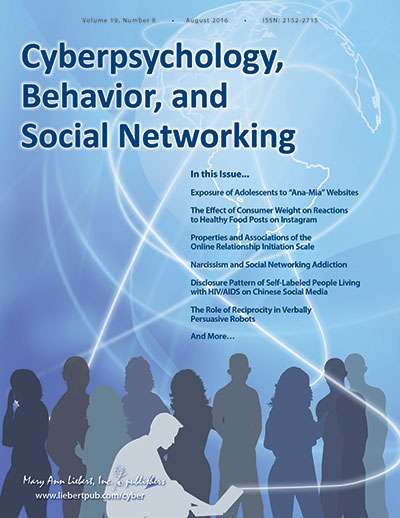What are the health risks of having a different 'Facebook self'?

People may express their true self more easily on Facebook than in person, and the more one's "Facebook self" differs from their true self, the greater their stress level and the less socially connected they tend to be, according to a new study published in Cyberpsychology, Behavior, and Social Networking.
In "The Psychological Benefits of Being Authentic on Facebook," Rachel Grieve and Jarrah Watkinson, University of Tasmania (Hobart, Australia), describe the main goal of their study: to evaluate the psychosocial outcomes related to presenting one's true self on Facebook. The authors assessed Facebook users' true and online personalities, degree of social connectedness, and feelings of psychological wellbeing, depression, anxiety, and stress.
"The current world population is 7.4 billion, and as of the second quarter of 2016, active Facebook users totaled 1.7 billion. As such, we must consider how Facebook may serve as a tool to positively impact our patients' lives," says Editor-in-Chief Brenda K. Wiederhold, PhD, MBA, BCB, BCN, Interactive Media Institute, San Diego, California and Virtual Reality Medical Institute, Brussels, Belgium.
More information: Rachel Grieve et al, The Psychological Benefits of Being Authentic on Facebook, Cyberpsychology, Behavior, and Social Networking (2016). DOI: 10.1089/cyber.2016.0010
Journal information: Cyberpsychology, Behavior, and Social Networking
Provided by Mary Ann Liebert, Inc





















